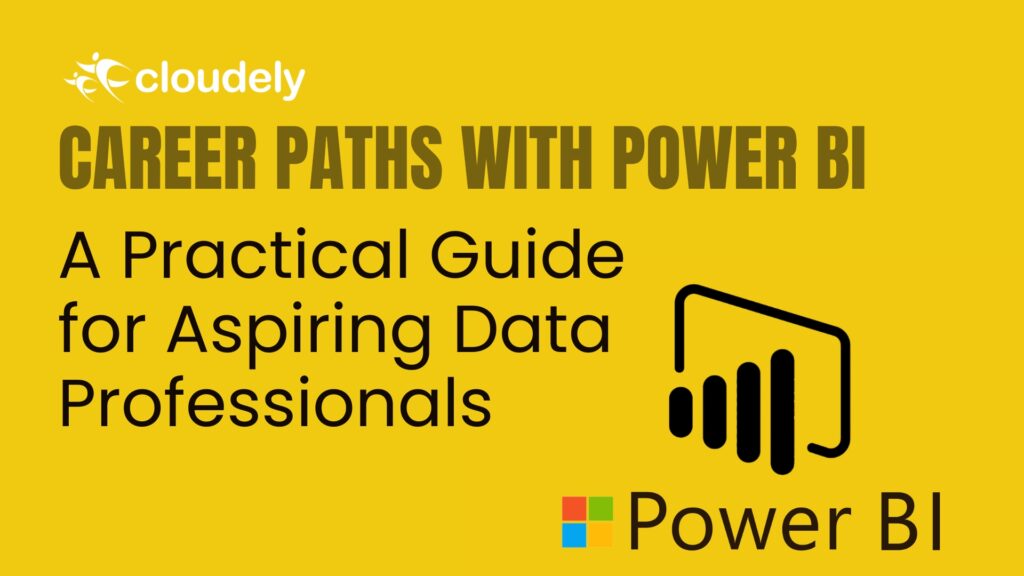Power BI has quickly become one of the most popular tools for data analysis and visualization. Whether you’re just starting out or looking to add a new skill to your resume, learning Power BI can open up a range of career opportunities.
In this article, we’ll break down what Power BI is, the types of roles it supports, and how you can build a career around it.
What Is Power BI, and Why Is It So Popular?
Power BI is Microsoft’s business analytics platform. It helps people connect to data sources, transform raw data into useful insights, and share interactive reports and dashboards.
Organizations of all sizes use Power BI because it:
- Integrates easily with other Microsoft tools like Excel and Azure
- Supports a wide range of data sources
- Makes reporting visual and accessible
- Helps teams make faster, data-driven decisions
This growing adoption has created a strong demand for professionals who can use Power BI effectively.
Key Career Paths with Power BI
Here are some of the most common roles where Power BI skills are in high demand:
1. Business Intelligence (BI) Analyst
BI Analysts collect data, analyze trends, and create reports that help leaders make better decisions. In this role, you’ll:
- Build dashboards and reports in Power BI
- Clean and transform data from multiple sources
- Communicate insights to stakeholders
Who it’s for: People who enjoy working with data and telling stories with visuals.
2. Data Analyst
Data Analysts often work closely with business units to understand their questions and deliver answers through data. Power BI is one of their main tools for:
- Visualizing patterns
- Creating ad-hoc analyses
- Automating routine reporting
Who it’s for: Professionals who like solving problems and translating data into actionable ideas.
3. Power BI Developer
Power BI Developers focus on the technical side. They design data models, build advanced dashboards, and often write DAX (Data Analysis Expressions) formulas to customize calculations.
Who it’s for: People comfortable with data modeling, coding, and configuring enterprise-grade solutions.
4. Data Visualization Specialist
If your strength is in design and communication, this role uses Power BI to create dashboards that are both informative and visually appealing. You’ll spend time refining layouts and making sure reports are clear and user-friendly.
Who it’s for: Those with an eye for design and detail.
5. Data Engineer (with Power BI Focus)
Some Data Engineers specialize in preparing and managing the data pipelines that feed into Power BI. This involves:
- Building ETL (Extract, Transform, Load) processes
- Integrating multiple systems
- Ensuring data quality
Who it’s for: Professionals who enjoy backend data work and want to ensure reports have reliable information.
Why Power BI Skills Are a Good Investment
Learning Power BI is a smart move because:
- Many companies already use it or are planning to adopt it
- It’s relatively easy to learn if you’re familiar with Excel
- It’s part of a broader Microsoft ecosystem that continues to grow
- Demand for data-driven decision-making keeps rising across industries
According to various market reports, the business intelligence market is set to expand significantly over the next few years. That means more opportunities for qualified professionals.

How to Get Started with Power BI
If you’re interested in building a career with Power BI, here are a few steps to begin:
Learn the Basics
- Explore free tutorials and Microsoft’s own Power BI documentation.
- Get comfortable importing data, creating visualizations, and publishing reports.
Work on Real Projects
- Use sample datasets to practice.
- Create dashboards that solve specific business questions.
Get Certified
- Microsoft offers certifications like the Power BI Data Analyst Associate.
- Certification helps validate your skills to employers.
Build a Portfolio
- Keep examples of your dashboards.
- Share your work on LinkedIn or a personal website.
Join Our Structured Power BI Training Program
For engineering students and fresh graduates, learning Power BI can be a strong first step into the world of data. Companies across industries are looking for professionals who can analyze and present data clearly—and that starts with the right foundation.
To support this, we’ve designed a Power BI training program that focuses on practical, job-ready skills—not just theory.
The program includes:
- Building real-world dashboards
- Data cleaning and modeling techniques
- Fundamentals of Excel and SQL (included at no extra cost)
- Preparation for the PL-300 certification exam
Click the image to find more details:

Participants will work on hands-on projects, receive daily learning materials, and build a portfolio that they can share during interviews or placements.
If you’re aiming to strengthen your resume, land internships, or stand out during campus hiring, this program is a great way to start.
Start with Cloudely Power BI Training Program
Power BI isn’t just a tool—it’s a gateway to a wide range of careers in analytics and business intelligence. Whether you’re starting out or transitioning from another field, investing time in learning Power BI can make you a more valuable professional.
If you’re curious about what role is the best fit for you, take time to explore, practice, and connect with mentors and trainers in our Power BI training. The skills you build today can open doors tomorrow.
